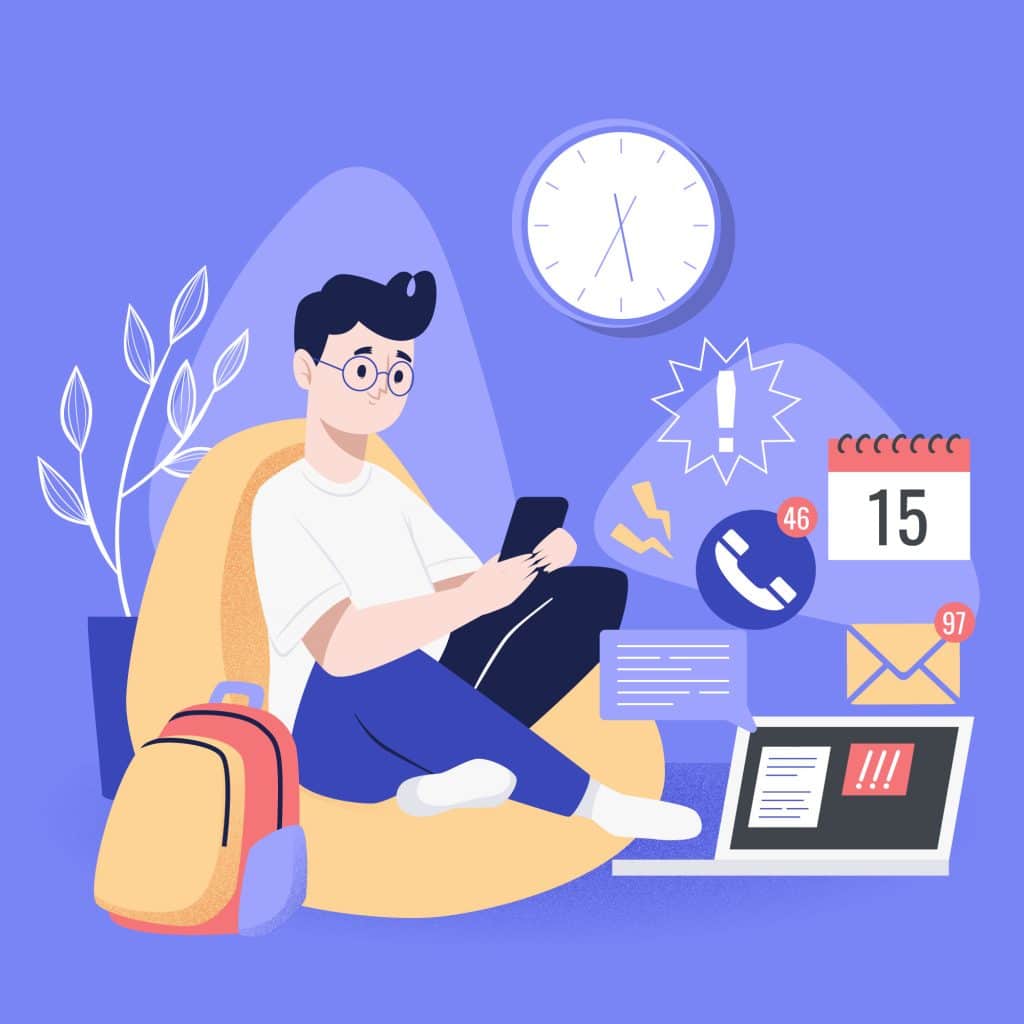In an always-on world, where your attention is constantly under siege by devices, demands, and deadlines, the conversation has been wrongly fixated on how to focus better. But here’s the uncomfortable truth: attention needs recovery, not just improvement.

The Myth of Focus: Why Concentration Isn’t Your Superpower Anymore
We’ve been sold countless hacks to improve our focus—Pomodoro timers, to-do list apps, brain-boosting supplements. Yet none seem to address the real cause of our struggle: attention fatigue. Research from Microsoft found that the average human attention span dropped from 12 seconds in 2000 to just 8 seconds in 2013—lower than that of a goldfish (Microsoft Canada 2015).
And while apps and tools claim to “fix” our attention, they often just mask the problem. What we need is less focus and more recovery.
Attention Is a Muscle—And It’s Exhausted
Think of attention like a muscle. It can be trained—but more importantly, it can also get sore, depleted, and injured. According to Dr. Gloria Mark, author of Attention Span: A Groundbreaking Way to Restore Balance, Happiness and Productivity, we switch screens every 47 seconds on average, and it can take up to 25 minutes to regain full concentration (Mark 2023). That’s not a productivity issue—it’s an attention injury.
Why Digital Burnout Is the Silent Killer of Focus
From Slack notifications to TikTok scroll holes, modern life is a barrage of micro-distractions. And each of these interruptions doesn’t just pull us away for a second—it chips away at our cognitive resources. A study from the University of California, Irvine found that even short interruptions can double the error rate when returning to a task (Bailey and Konstan 2006).
This isn’t just about screen time—it’s about mental recovery time. Our brains are on a treadmill with no pause button.
The Case for Cognitive Recovery: More Than Just Sleep
You might think a good night’s sleep is enough to reset your brain. It’s not. Recovery happens in layers—from micro-breaks during work, to nature walks, to tech-free weekends.
Here’s what recovery can look like:
-
Microbreaks: Just 5–10 minutes of stretching or walking boosts attention (Keller et al. 2020).
-
Nature Exposure: Spending 20 minutes in nature significantly lowers cortisol levels and restores cognitive capacity (Hunter et al. 2019).
-
Deep Play: Engaging in non-work hobbies that require presence—like painting or playing an instrument—can activate different neural pathways and refresh attention circuits.
Corporate Wellness Got It Wrong
Most corporate solutions to burnout focus on productivity hacks, not recovery. The idea is: “Let’s fix how people work.” But the issue is how long and how often we expect people to focus. A 2022 Deloitte study showed that 77% of professionals experienced burnout at their current job, yet only 30% took enough time off to fully recover (Deloitte 2022).
Workplaces must shift from “how can we get more out of you” to “how can we help you reset your mind.”
How to Build a Recovery-First Lifestyle
Want to reclaim your attention without another app? Here’s a better blueprint:
1. Design Disconnection into Your Day
Schedule tech-free zones into your routine—like no phones in the bedroom or during meals. These windows of absence recalibrate your overstimulated mind.
2. Adopt Active Rest
Instead of passive scrolling, replace downtime with active recovery: go for a walk, do breathing exercises, or take a cold shower.
3. Redefine Productivity
Instead of measuring how many hours you worked, measure how often you recharged. Try the “30-5 Rule”: 30 minutes of deep work, 5 minutes of physical reset.
4. Reclaim Your Mornings
Avoid screens for the first hour. Morning light and analog activities (like journaling or reading) help restore mental clarity and set a slower pace for the day.
5. Prioritize Boredom
Yes, boredom. Giving your mind space to wander allows it to reset creatively. Neuroscientist Dr. Sandi Mann refers to boredom as “the gateway to creativity” (Mann 2016).
The Future of Wellness Is Recovery-Centric
Wellness isn’t about being hyper-efficient—it’s about being sustainably alert. As society wakes up to the reality that constant focus isn’t possible or healthy, attention recovery will become the next frontier in mental wellness. Digital detox retreats, mindfulness-based attention therapy, and corporate nap pods aren’t trends—they’re survival tools.
Final Thought
Stop blaming yourself for “lack of focus.” The world we live in is designed to hijack your mind. What you need isn’t another productivity system—it’s permission to recover, reset, and restore your most precious resource: attention.
References
- Bailey, B.P. and Konstan, J.A. (2006) ‘On the need for attention-aware systems: Measuring effects of interruption on task performance’, Computers in Human Behavior, 22(4), pp. 685–708. Available at: https://doi.org (Accessed: 30 June 2025).
- Hunter, M.R., Gillespie, B.W. and Chen, S.Y.-P. (2019) ‘Urban nature experiences reduce stress in the context of daily life based on salivary biomarkers’, Frontiers in Psychology, 10, 722. Available at: https://doi.org (Accessed: 30 June 2025).
- “20-Minute Nature Pill” Stress Relief Summary (April 2019), Science summary highlighting the practical “nature‑pill” concept: Frontiers News









